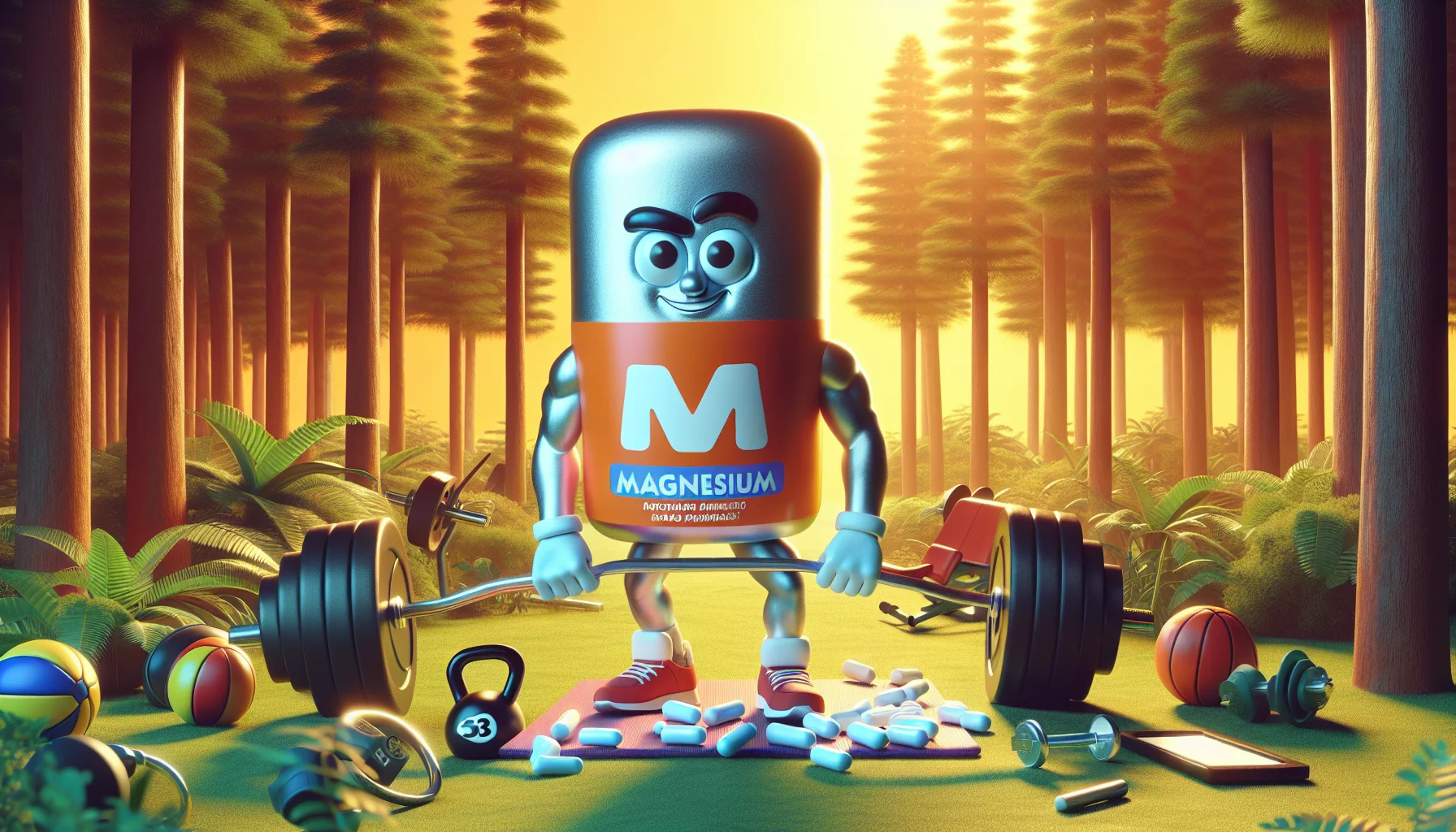Magnesium morning wood Quiz
Test Your Knowledge
Question of
The Surprising Connection Between Magnesium and Morning Wood
Morning wood, or nocturnal penile tumescence, is a common phenomenon for men, often associated with healthy erectile function. It serves as an important indicator of men's health, reflecting both physical and psychological well-being. The occurrence of morning wood suggests that the blood vessels and nerves responsible for erectile function are working properly. Moreover, it indicates that hormonal levels, particularly testosterone, are at healthy levels. The absence of morning wood can sometimes signal underlying health issues, making it a significant aspect of male health to be aware of.
What is Magnesium?
Magnesium is a chemical element with the symbol Mg and atomic number 12. It is a shiny gray solid which bears a close physical resemblance to the other five elements in the second column of the periodic table: all group 2 elements have the same electron configuration in the outer electron shell and a similar crystal structure. In the human body, magnesium is the fourth most abundant mineral and is crucial for many bodily functions. It plays a vital role in over 300 enzymatic reactions, including energy production, protein synthesis, and muscle and nerve function. Magnesium also contributes to the structural development of bone and is required for the synthesis of DNA, RNA, and the antioxidant glutathione. It helps regulate blood pressure and blood sugar levels, and supports the immune system. A deficiency in magnesium can lead to a variety of health issues, making it essential for overall health.
How Magnesium Affects Sexual Health
Magnesium plays a crucial role in various bodily functions, including sexual health. It has been found to significantly impact testosterone levels, which are essential for sexual libido and energy. Testosterone, a hormone vital for sexual desire in both men and women, can be positively influenced by adequate levels of magnesium in the body. Furthermore, magnesium's role in muscle relaxation is also beneficial for erectile function. It helps in the dilation of blood vessels, which improves blood flow to different parts of the body, including the sexual organs. This improved blood flow is critical for achieving and maintaining erections, indicating magnesium's importance in erectile health and overall sexual well-being.
Magnesium and Morning Wood: What's the Link?
Magnesium plays a crucial role in various bodily functions, including muscle and nerve function, blood sugar levels, and blood pressure regulation. It's also known for its benefits in promoting restful sleep, which is a critical factor in achieving healthy morning erections, commonly referred to as "morning wood." Adequate levels of magnesium may help improve blood flow, thanks to its ability to relax blood vessels. This relaxation is essential for the increase in blood flow required to achieve and maintain erections. Therefore, magnesium supplementation could potentially enhance the quality of morning erections by supporting vascular health, improving sleep quality, and reducing stress levels, all of which are beneficial for optimal sexual health.
Recommended Daily Magnesium Intake for Men
- Men aged 19-30 years: 400 mg
- Men aged 31-50 years: 420 mg
- Men aged 51+ years: 420 mg
Top Magnesium-Rich Foods for Your Diet
- Spinach
- Chard
- Pumpkin seeds
- Yogurt or Kefir
- Almonds
- Black Beans
- Avocado
- Figs
- Dark Chocolate
- Bananas
Magnesium Supplements: Are They Necessary?
Magnesium is a crucial mineral that plays a vital role in numerous bodily functions, including muscle and nerve function, blood sugar levels, and blood pressure regulation. While it's best to get magnesium from foods like nuts, spinach, and whole grains, certain situations may necessitate magnesium supplements. These situations include dietary deficiencies, certain medical conditions, or increased magnesium requirements. When considering magnesium supplements, it's important to understand the different types available, such as magnesium citrate, magnesium oxide, and magnesium glycinate, each with its own absorption rates and uses. Choosing the right supplement depends on your specific health needs, potential dietary restrictions, and doctor's advice.
| Type of Magnesium | Pros | Cons |
|---|---|---|
| Magnesium Citrate | Highly absorbable, can have a laxative effect which is beneficial for constipation. | May cause digestive issues in some people. |
| Magnesium Oxide | Commonly used, inexpensive. | Lower absorption rate. |
| Magnesium Glycinate | Better tolerated, less likely to cause laxative effects. | More expensive than other forms. |












